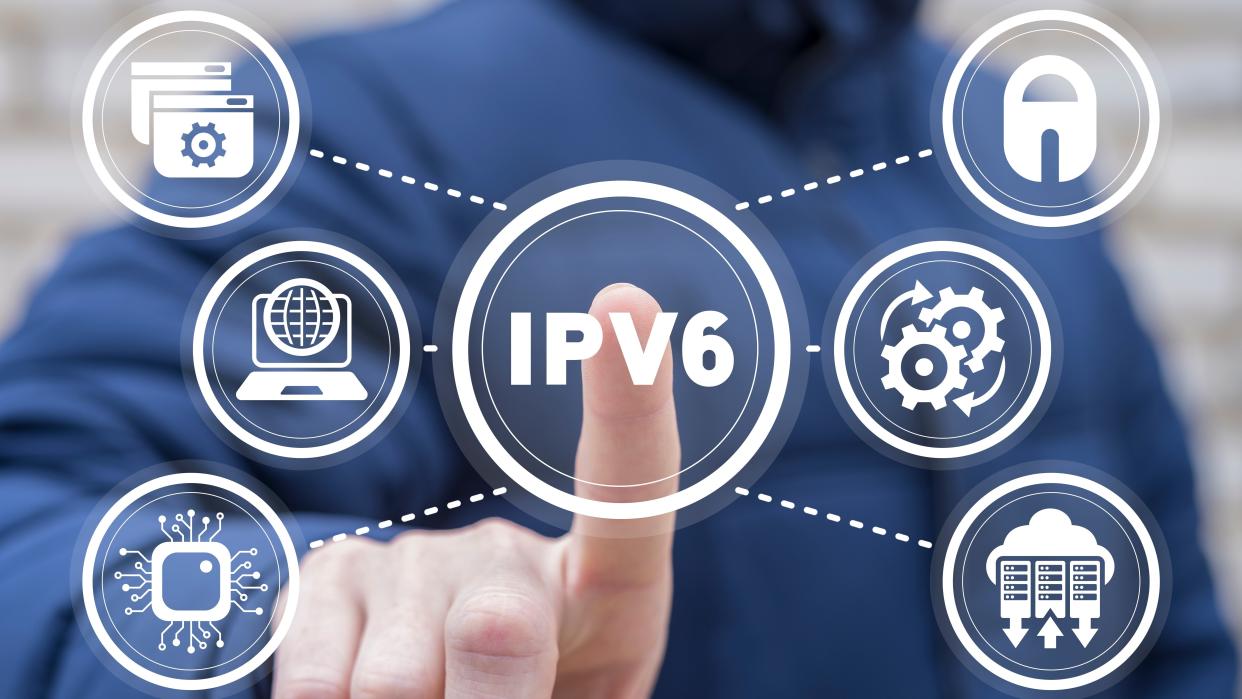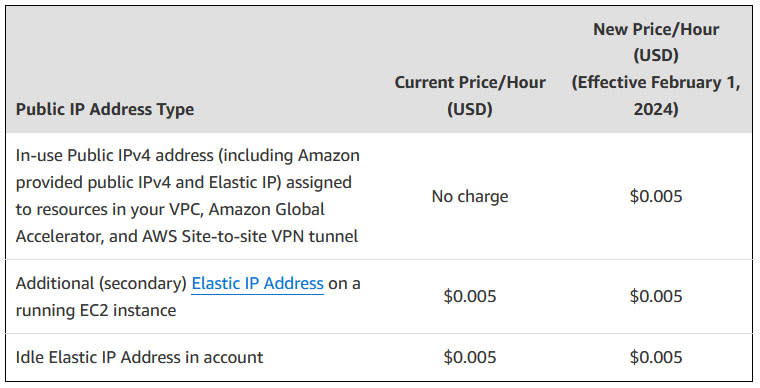Amazon AWS To Charge for Public IPv4 Address Next Year

IN yet another sign of the increasing scarcity of Ipv4 addresses, citing a pricing increase of 300% for new addresses, Amazon Web Services (AWS) will introduce a charge of $0.005 per IP per hour for all public IPv4 addresses starting from February 1, 2024. New charges will apply to Virtual Private Cloud (VPC), Amazon Global Accelerator, and AWS Site-to-site VPN tunnel services using public IPv4 addresses. The advance notice was given to AWS customers just ahead of the weekend via a blog post by the Chief Evangelist of the firm, Jeff Barr.
The main reason behind AWS' introduction of charges is the purported 300% rise in costs in acquiring a single public IPv4 address over the last five years (due to scarcity). It is also highlighted in the blog that there is a need to conserve IPv4 addresses and modernize by accelerating moves to IPv6 (no hourly IP charges).
So, $0.005 seems like a very small charge, but remember that this is an hourly charge and will apply to every public IPv4 address allocated in your account, whether attached to an AWS service or not. A quick calculation shows that for one IPv4 address, the new charging amount will be $43.80 per annum. The chart below should help you see where the charges apply and what exactly is new.

Amazon is also introducing a new Public IP Insights tool for users to audit their use of public IPv4 addresses. It hopes the free tool guides users to see, sort, filter, and learn more about each of the public IPv4 addresses they are using. It will also help users see where updates to their apps might minimize the effects of new charges. The AWS blog has previously provided guidance on moving services to IPv6.
To provide some background to the new charges AWS is advising its customers to be ready for, let's look a bit closer at IPv6, the destination to which customers are being nudged. IPv6 was designed to replace IPv4 for the provision of internet addresses, as the latter is limited to 4.3 billion devices by nature of its 32-bit addressing scheme. IPv6 was created in 1998 with 128-bit addressing to provide approximately 340 undecillion addresses. That ought to be enough for anybody.
IPv6 wasn't doesn't just provide an extension to the number of addresses available; it's not just like adding digits to phone number lengths. It is also claimed to handle packets more efficiently, improve performance, increase security, and more. Google charts IPv6 adoption among its users, and it reckons just over 42% of the internet uses IPv6 right now. Meanwhile, most of the world is thought to have run out of IPv4 addresses sometime between 2011 and 2018, with almost all 'new' addresses put into use today being IPv4 addresses that are abandoned or have been sold for re-use.

